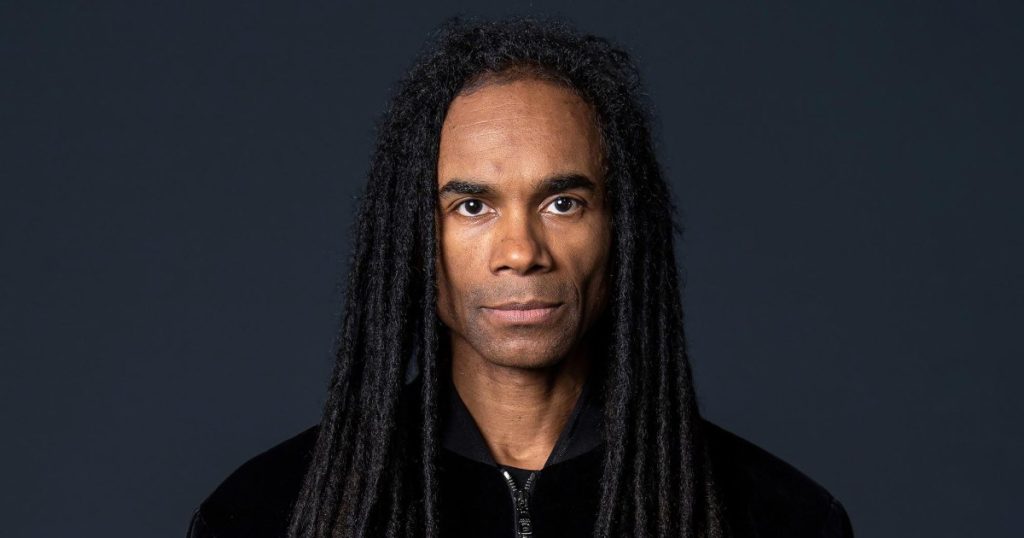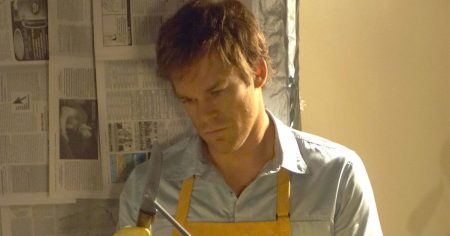The story of Milli Vanilli, the disgraced R&B duo, is a cautionary tale of manufactured fame, deception, and the devastating consequences of prioritizing profit over artistic integrity. Their meteoric rise to stardom in the late 1980s, fueled by catchy pop tunes and a charismatic stage presence, masked a deeply hidden secret: Fab Morvan and Rob Pilatus, the faces of the group, weren’t actually singing on their records or during live performances. This elaborate charade, orchestrated by their producer Frank Farian, ultimately imploded in spectacular fashion, culminating in the unprecedented revocation of their Grammy Award and the duo becoming synonymous with lip-syncing scandal. The 2023 documentary on their story and the inclusion of their music in the Ryan Murphy series “Monsters: The Lyle and Erik Menendez Story” has brought their saga back into the public consciousness, offering a renewed opportunity to examine the complexities of their rise and fall.
Fab Morvan, now 58, doesn’t shy away from the controversy that derailed his career. While acknowledging the deception, he maintains a sense of injustice, feeling that he and Pilatus were scapegoated while the true architects of the scheme reaped the financial rewards. He points to the vast sums of money generated by Milli Vanilli’s success, estimating over $300 million, and argues that this revenue paved the way for other artists in the 1990s. Morvan’s perspective highlights the exploitative nature of the music industry, where artists can become commodities, manipulated and discarded once their profitability diminishes. The duo, in his view, bore the brunt of the public backlash while the executives, producers, and record labels escaped unscathed, using the profits to enrich their own lives.
The notion of Milli Vanilli as sacrificial lambs is a recurring theme in Morvan’s reflections. He contends that the elaborate deception wasn’t solely their doing; they were caught in a web of manipulation spun by industry power players who prioritized profit over artistic authenticity. The pressure to maintain the facade, the constant fear of exposure, and the lack of control over their own artistic expression took a heavy toll. Morvan’s perspective underscores the ethical dilemmas inherent in the pursuit of fame and fortune, particularly when artistic integrity is compromised. He portrays himself and Pilatus as victims, caught in a system that exploited their talent and image for financial gain, leaving them to grapple with the consequences when the truth inevitably surfaced.
The aftermath of the scandal was devastating for both Morvan and Pilatus. Their attempt at a comeback in the 1990s, with a new album and tour, was tragically cut short by Pilatus’s death from a drug overdose in 1998. This tragic event further cemented the narrative of Milli Vanilli as a cautionary tale, a stark reminder of the personal cost of fame and the pressures of living under constant public scrutiny. The unreleased album serves as a poignant symbol of their unrealized potential, a reminder of what could have been had they been given the opportunity to rebuild their careers on a foundation of honesty and authenticity.
Despite the hardships and the enduring stigma associated with the lip-syncing scandal, Morvan has found a way to reframe his experience. He now views the Milli Vanilli name not as a symbol of shame, but as a testament to resilience and the ability to overcome adversity. He sees their story as a metaphor for falling down and getting back up, for reinventing oneself in the face of failure. This perspective represents a shift from bitterness and resentment to a more empowering narrative of personal growth and self-acceptance. He acknowledges the tumultuous nature of his journey, likening it to living the lives of a hundred men, both during the height of Milli Vanilli’s fame and in the years that followed. This reflection speaks to the profound impact the experience had on him, shaping his worldview and ultimately leading him to a place of greater understanding and self-awareness.
Morvan’s current outlook suggests a desire to reclaim the narrative surrounding Milli Vanilli. He acknowledges the deception and the hurt it caused, but also emphasizes the lessons learned and the importance of perseverance. He hopes that the Milli Vanilli name will eventually symbolize not just the scandal, but also the resilience of the human spirit. His reflections offer a nuanced perspective on the complexities of fame, the pressures of the music industry, and the enduring power of second chances. He admits that even during the peak of their success, there was an underlying fear of the inevitable exposure, comparing their relationship with the public to a romantic relationship built on deceit. This analogy highlights the sense of betrayal felt by fans when the truth was revealed, and the emotional toll it took on Morvan and Pilatus as well.










